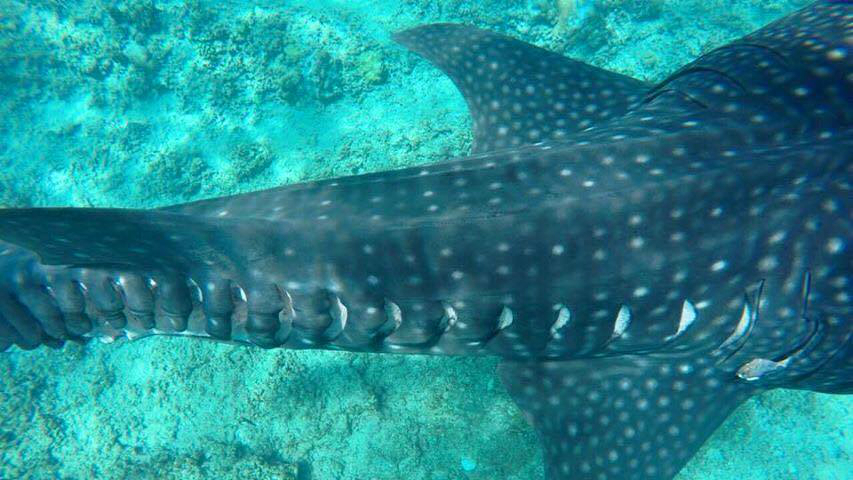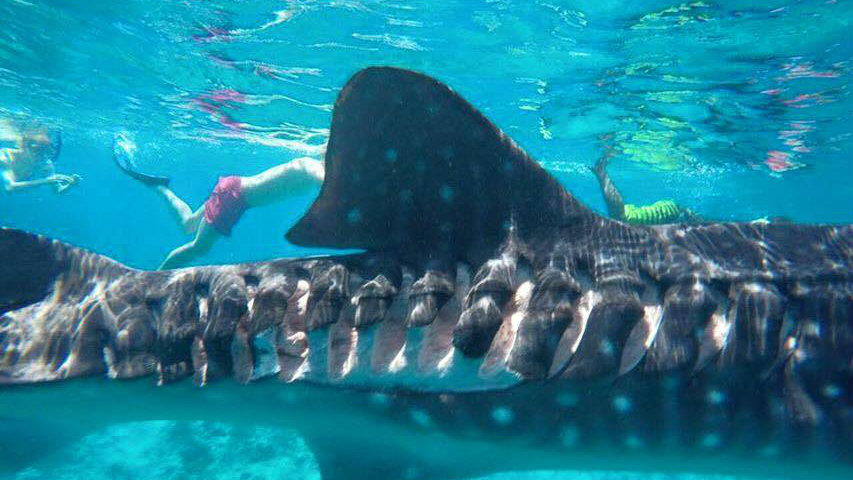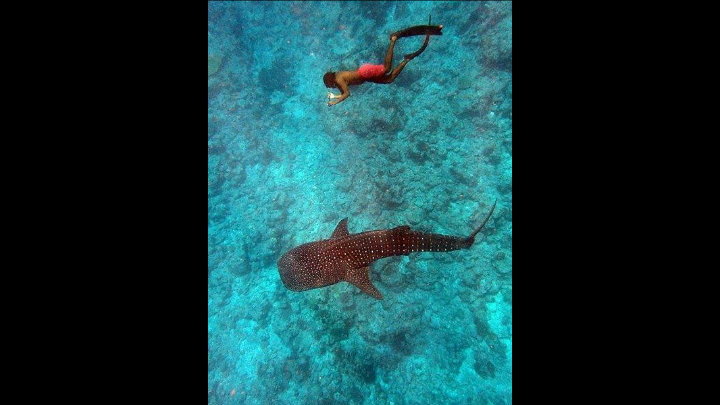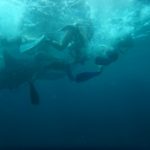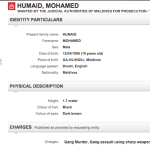The Maldives Whale Shark Research Programme (MWSR) has revealed photos of a whale shark with severe injuries caused by a boat propellor.
The organisation posted photos of a whale shark it has named Naococco with deep cuts and wounds.
“It seems Naococco is the latest shark to fall foul of a boat propeller. The images below show the extent of the injuries which are among the worst we’ve seen,” reads the Facebook post.
Naococco was last seen uninjured on June 1, the MWSRP said.
Here’s what he looked like before he was hit by the boat’s propellors:
Whale sharks are protected in the Maldives.
The MWSRP is a research-based conservation charity dedicated to study the whale shark and fostering community-focused conservation initiatives in the Maldives and the greater Indian Ocean.
The whale shark’s injuries “highlights the danger that vessels pose to these sharks,” the MWSRP suggested.
“We urge all users of the area to slow down below the 10kts speed limit and keep a dedicated spotter watching ahead of the path of the vessel for the duration of the time they are traveling through the S.A. MPA [the Southern Ari Atoll Marine Protected Area].
“The MWSRP and the network of guides and marine biologists will be monitoring Naococco’s progress and we hope he will defy the odds and make a full recovery.”
The southern tip of Ari atoll, a year-long whale shark aggregation site, was declared a marine protected area (MPA) in June 2009.
It is prohibited to anchor, mine for coral or sand or dump rubbish in MPAs. Fishing and any other activity which may cause damage to marine life is also forbidden.
The MWSRP was not responding to inquiries despite repeated attempts.
According to a report by a marine researcher on the economic value of whale sharks in Maldives, the estimated direct expenditures for whale shark focused tourism in the South Ari Marine Protected Area for 2012 and 2013 accounted for US$7.6 and $9.4 million respectively.
The figures are based on an estimate of 72,000–78,000 tourists who are involved in whale shark excursions annually.
In 2010, the MWSRP warned that excessive human interaction with whale sharks in South Ari Atoll could eventually lead to the species leaving the area permanently, after receiving reports of tourists touching and even attempting to ride the sharks.

